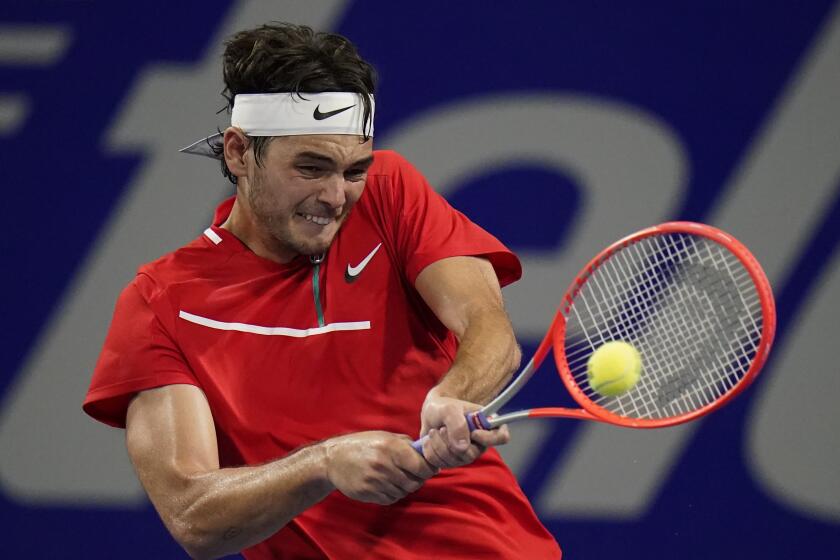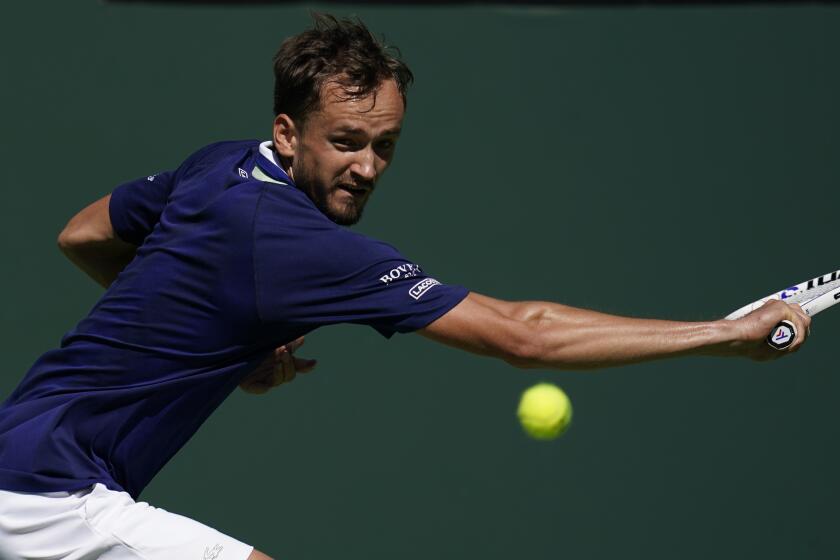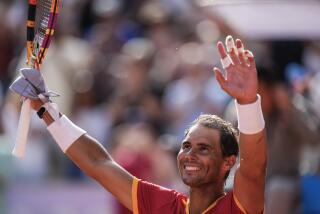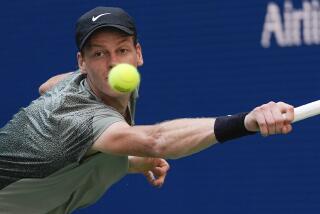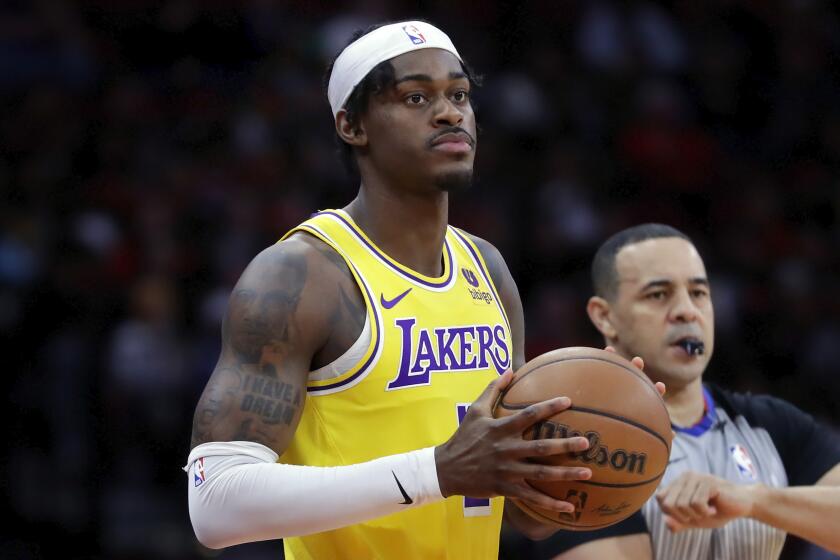Column: Next wave of American men give U.S. tennis fans hope
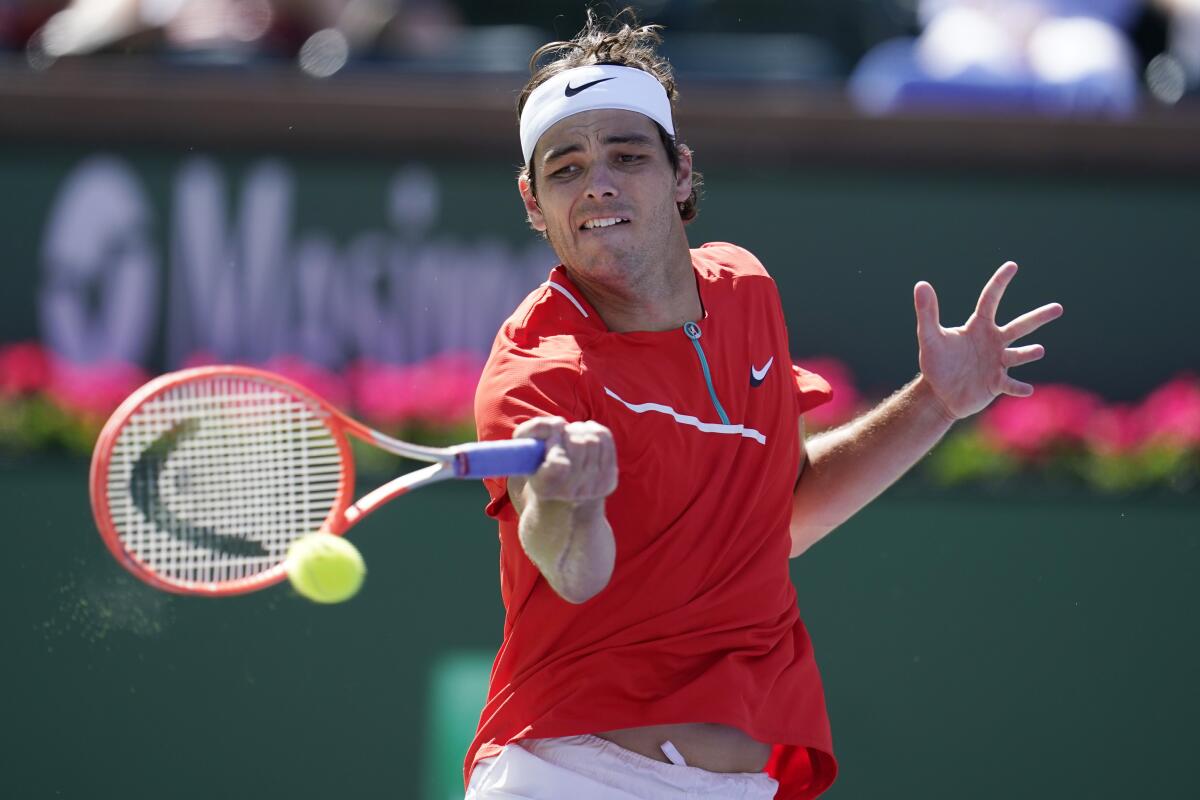
- Share via
Stefanos Tsitispas didn’t seem all that impressed by Jenson Brooksby after the precocious 21-year-old from Sacramento had upset him in the third round of the BNP Paribas Open.
“I don’t think there’s something that makes him tricky to play,” said Tsitsipas, ranked No. 4 in the world, after Brooksby prevailed 1-6, 6-3, 6-2 on Monday.
OK, Brooksby isn’t tricky. Then what makes him so difficult to play?
“Putting balls back. That’s what makes him difficult,” Tsitsipas said. “He’s not a very explosive player, but he’s able to get balls back. He’s not the most athletic player as well. He’s just able to read the game well, play with his pace, play with the opponent’s pace. He’s able to read the game well and stay consistent.
“There’s nothing that he has that kills, I would say.”
That’s enough about what Brooksby supposedly doesn’t have. Focus on what he has: talent, smarts and the maturity to belong in the forefront of a modest resurgence by American male tennis players.
An American man won at least one Grand Slam singles title from 1990 through 2003. On five occasions during the dominance of Jim Courier, Andre Agassi and Pete Sampras, American men won three of the four Slams singles titles in a year. Andy Roddick’s 2003 U.S. Open championship was the last in that streak and remains the most recent Slam singles title won by an American man.
Blame it on a developmental system that couldn’t decide how to best identify and nurture talent. Blame it on losing kids to other sports and on the rest of the world catching up.
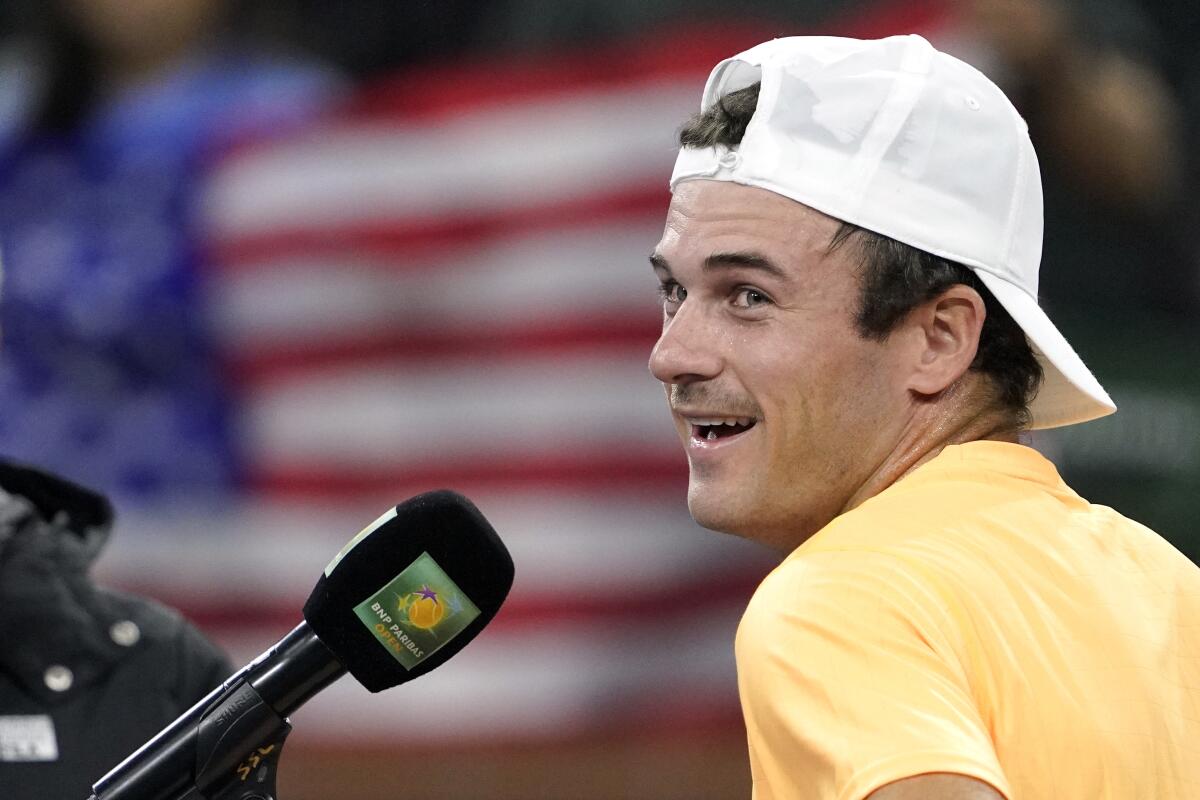
American women have thrived, though. Female American athletes have fewer professional sports options than men, and Billie Jean King’s activism for equal pay made tennis a sport in which female athletes can make a good living. In addition, the success of Serena and Venus Williams and the see-it-and-be-it effect have made the talent pool for women’s tennis large and diverse.
But finally, there’s reason for optimism about American men. That hopefulness is partly embodied by Brooksby, one of seven American men who reached the third round here, the most since 1994. Brooksby, who remembers collecting autographs when visiting Indian Wells Tennis Garden as a child, will face defending champion Cameron Norrie of Britain in a fourth-round match Wednesday.
“I think for the first time in a while you can actually say American tennis on the men’s side is very promising. There’s no doubt about that,” John Isner, an American mainstay at 36, said Tuesday after he moved on with a 7-5, 6-3 victory over Diego Schwartzman of Argentina.
“We certainly have strength in numbers in the top 100. We have a lot of players in the top 100. There’s some legitimate chatter about some of these guys coming up being really, really good.”
Taylor Fritz was wondering how to improve his tennis game and his world ranking when he realized the answers were waiting in his much-heralded past.
Taylor Fritz of Rancho Palos Verdes, 24, outlasted Jaume Munar of Spain 6-4, 2-6, 7-6 (2) on Tuesday at sun-baked Stadium 2. Fritz, a semifinalist here last year, advanced to a fourth-round matchup with Alex DeMinaur, who eliminated American Tommy Paul on Tuesday. But Paul, 24, opened many eyes with his upset of world No. 3 Sascha Zverev in the second round.
Fritz said he was delighted by the play of Paul and Reilly Opelka, who beat Denis Shapovalov in the third round and will face Rafael Nadal on Wednesday. Opelka is the top American man in the world rankings, at No. 17. Fritz ranks 20th.
“It’s awesome. It’s also not very surprising,” Fritz said. “I know how good these guys are. It’s not weird to see these guys beating really good players, having solid results. I mean, Tommy is really close to cracking into being seeded at Slams and stuff. Reilly is consistently beating very, very good players.”
Former USC standout Steve Johnson, 32, fell to Hubert Hurkacz of Poland 7-6 (7), 6-3 on Tuesday. Frances Tiafoe, who ranks 30th in the world, fell to Andrey Rublev, 6-3, 6-4.
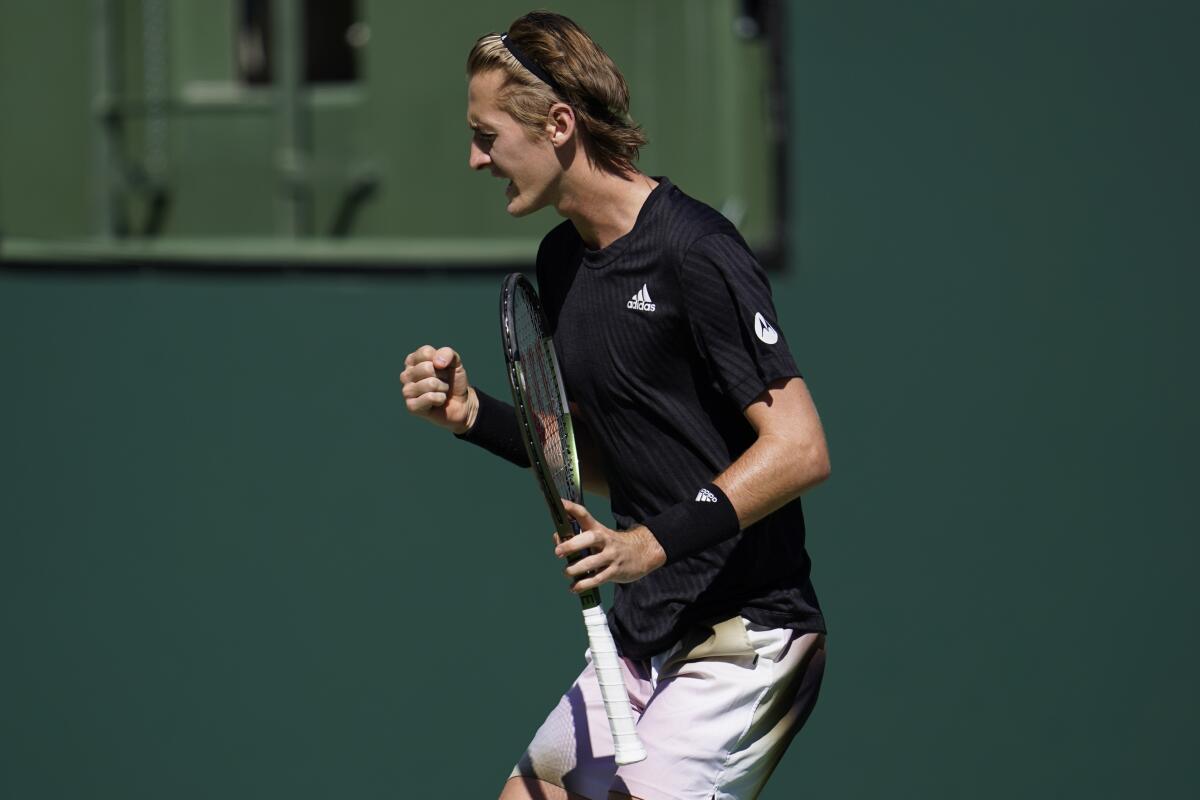
Progress doesn’t always spring from victories. Sebastian Korda put on a show in the second round by taking a 5-2 lead over Nadal in the third set before the brilliant Spaniard staged another remarkable comeback. Korda shouldn’t feel bad about not beating Nadal: No one else has beaten him yet this year. Nadal is 17-0. “I kind of proved to myself that I can play with anyone,” Korda said after that loss.
Korda and Brooksby seem to have the best chance to lead the next generation of American men back to tennis glory. Korda’s versatile and aggressive game, distinguished by his punishing backhand, is a marvel. But Brooksby has won over many fans, even if Tsitispas isn’t among them.
“To me, I think you’re splitting hairs with Jenson and Sebastian,” Isner said. “Sebastian has had a tough go this year trying to close out matches. Ultimately, I think all these experiences are going to be a good thing for him. To me, it doesn’t seem like he’s panicking at all. His game is there. One of the most fluid games I’ve seen in a while.
No. 1 ranked Daniil Medvedev fell to Gael Monfils while Rafael Nadal beat Daniel Evans in two sets Monday at BNP Paribas Open in Indian Wells.
“I mean, him and Jenson? I don’t know. In my estimation, maybe Sebastian has a real, real high ceiling. He just hasn’t put it together this year.”
Isner made a good point in saying it won’t take an American man winning a Slam title to say American men’s tennis is back. “The bar has been set pretty low since 2003, probably,” he said. “I think getting two guys in the top 10 would be a good starting point, then you go from there. … I do think getting two players in the top 10 sometime in the near future is very conceivable.”
It can’t happen soon enough.
More to Read
Go beyond the scoreboard
Get the latest on L.A.'s teams in the daily Sports Report newsletter.
You may occasionally receive promotional content from the Los Angeles Times.

